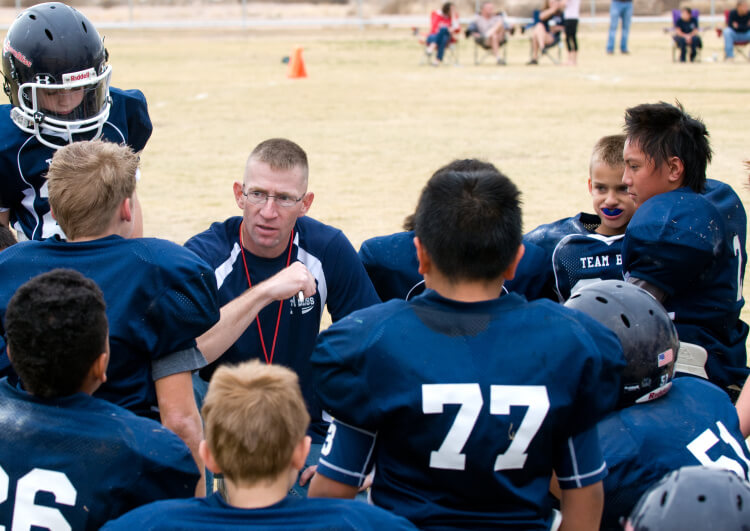Recent news of a cover-up at Baylor University where campus leadership failed to act legally and ethically to sexual assault allegations recently dominated media headlines. The situation at Baylor is an unfortunate reminder of misguided leadership at Penn State where institutional leaders (i.e. coaches, athletic directors, and administrators) failed to respond appropriately to allegations of sexual misconduct by former assistant football coach Jerry Sandusky.

What happened at Penn State was beyond shocking, but the Baylor saga suggests a similarly troubling dark reality of an environment often shaped by athletics within educational institutions: An environment built on intense loyalty to protect the interests of athletic programs. Penn State is just one example where institutional leaders struggled to make ethical decisions amidst the lure of achieving athletic success on the field. Educational leaders at Florida State University, the University of Montana, and the University of Oregon have in recent years chosen to remain loyal to their athletic programs in the pursuit of victory.
This challenge is not unique to the NCAA Division I level of competition. Institutions competing at lower levels of athletics are also greatly influenced by what occurs in the athletic department. For example, at Belmont Abby College, administrators added college football to increase student enrollment. The commonality at all levels is the pursuit of financial gain, where winning brings more money either through television contracts, donations, ticket sales, merchandise sales, or increased enrollment (i.e. tuition dollars).
Interestingly, the impact of these behaviors is not limited to the college campus. There is a trickle down effect to interscholastic athletics where student-athletes seek athletic scholarships as a way to pay for a college education (i.e. financial gain) and a willingness to risk physical (i.e. overtraining) and emotional (i.e. stress) harm to gain a competitive edge in the recruiting process. This is a dangerous mindset for our youth considering the odds of earning an athletic scholarship are dismal in comparison to money available for academic scholarships (Average Athletic Scholarship per Varsity Athlete, 2015).
As an educator (i.e. teacher, coach, or administrator) it might be easy to dismiss the scenario at Baylor as just another mishandled situation in collegiate sport. Incidents of mismanagement, unethical conduct, and illegal activity have festered in sport since schools started competing in athletics. Coaches who violate recruiting rules to entice a student-athlete to commit to their programs might glance the other way when the same student-athlete breaks the law or violates a campus policy. Athletic directors hire coaches with a winning record, while simultaneously ignoring the coach’s past misdeeds. Faculty members succumb to peer pressure and pass student-athletes for inadequate class work, helping the student-athlete remain eligible for competition. Campus administrators concerned with fundraising and balancing the budget react slowly to concerns within the athletics department in order to protect the interests of current donors.
Watching the scandal at Baylor unfold raises questions as to how institutional leaders are too frequently wantonly incompetent in protecting the students they serve. While shock and outrage is warranted, anyone working in education at any level will feel the impact of athletics at his or her institution. Just a week after Baylor let go key members of their leadership team, Mississippi State University had to make a decision whether to allow an incoming recruit to enroll in school after a video surfaced of his off-the field actions (Adelson, 2016), and in a small Idaho town local schools officials are named in a lawsuit for failing to act soon enough to prevent a sexual assault on a mentally disabled student-athlete by his teammates (Miller, 2016).
Educators are challenged to remain steadfast in their beliefs while operating in an environment beyond their control. It can be difficult to stand-up for what you believe in at the risk of losing your job. There are numerous examples of whistleblowers that fought against a culture driven by athletics. Often, it is the whistleblowers that lose their jobs and are forced to leave the professional field they love (e.g. University of Oregon).
The situation at Baylor University is more then simply an example of deceit in the pursuit of victory. It provides a cautionary tale of how easily we can be swept away in the euphoria of sport and all that it affords. Arguably, the actions of those in leadership positions at Baylor were not premeditated, but a reaction to the unfortunate actions of students and student-athletes on campus. While the former leaders of Baylor University provide a wonderful lesson in how not to respond, more importantly what transpired provides all of us an opportunity to reflect on how we would act if faced with a scenario that challenges our values. For example, how would you as an educational leader respond in the following scenarios?
- A student-athlete is accused of rape?
- A student-athlete cheats on an exam right before the playoffs?
- A coach fails to discipline a star player who has behaved inappropriately before a critical upcoming tournament?
In sum, your responses to the above scenarios demonstrate what you believe in and what you value about education and sport? What we believe in guides our actions and demonstrates what we value. The actions of the leaders at Baylor University demonstrated that they valued winning above respect for others. When you are faced with a scenario that challenges you to act, what values will you demonstrate? Remember, your decisions will determine how you will be remembered as an educator of young people.
References
Adelson, A. (2016, June 2). Mississippi State chooses football over doing the right thing. ESPN. Retrieved from: http://espn.go.com/college-football/story/_/id/15914709/mississippi-state-bulldogs-learn-baylor-bears-jeffery-simmons-decision
Average Athletic Scholarship per Varsity Athlete (2015). Scholarship Stats. Retrieved from http://www.scholarshipstats.com/average-per-athlete.html
Miller, M. E. (2016, May 25). Dietrich High athletes raped black, mentally disabled teammate, lawsuit claims. Washington Post. Retrieved from http://www.idahostatesman.com/news/state/idaho/article79765702.html
